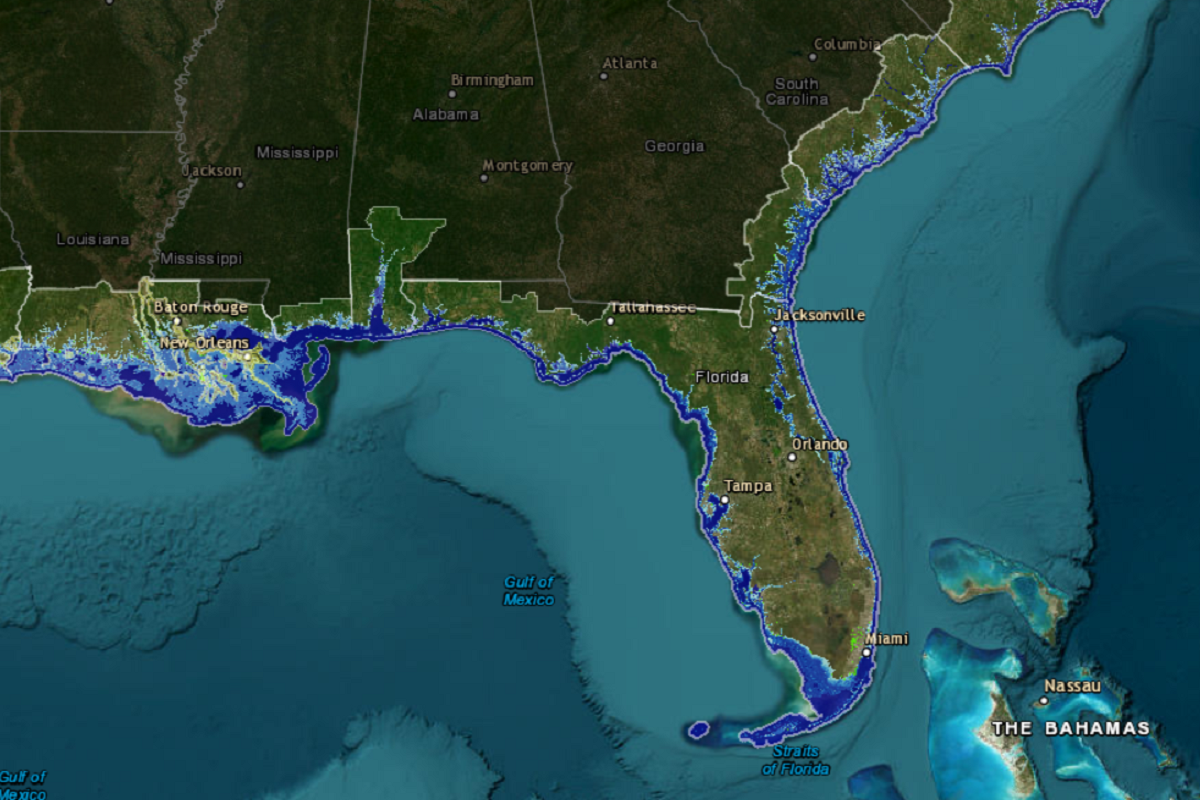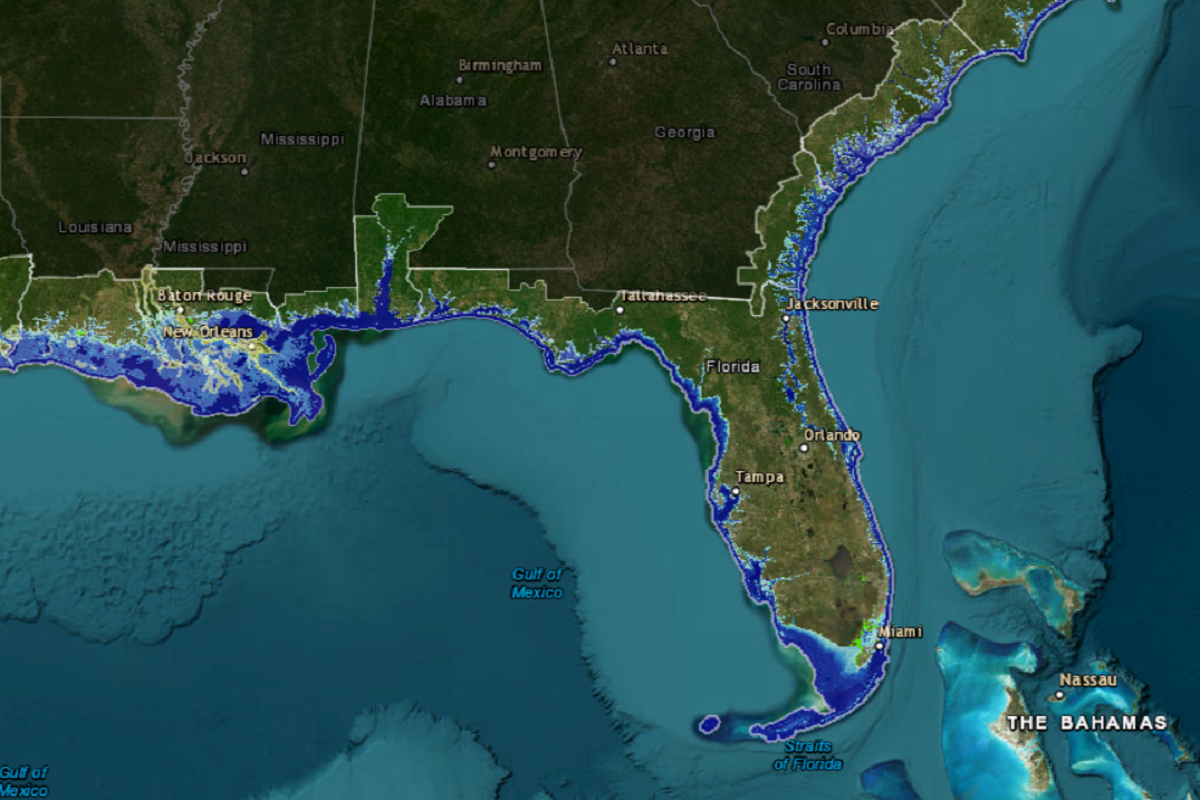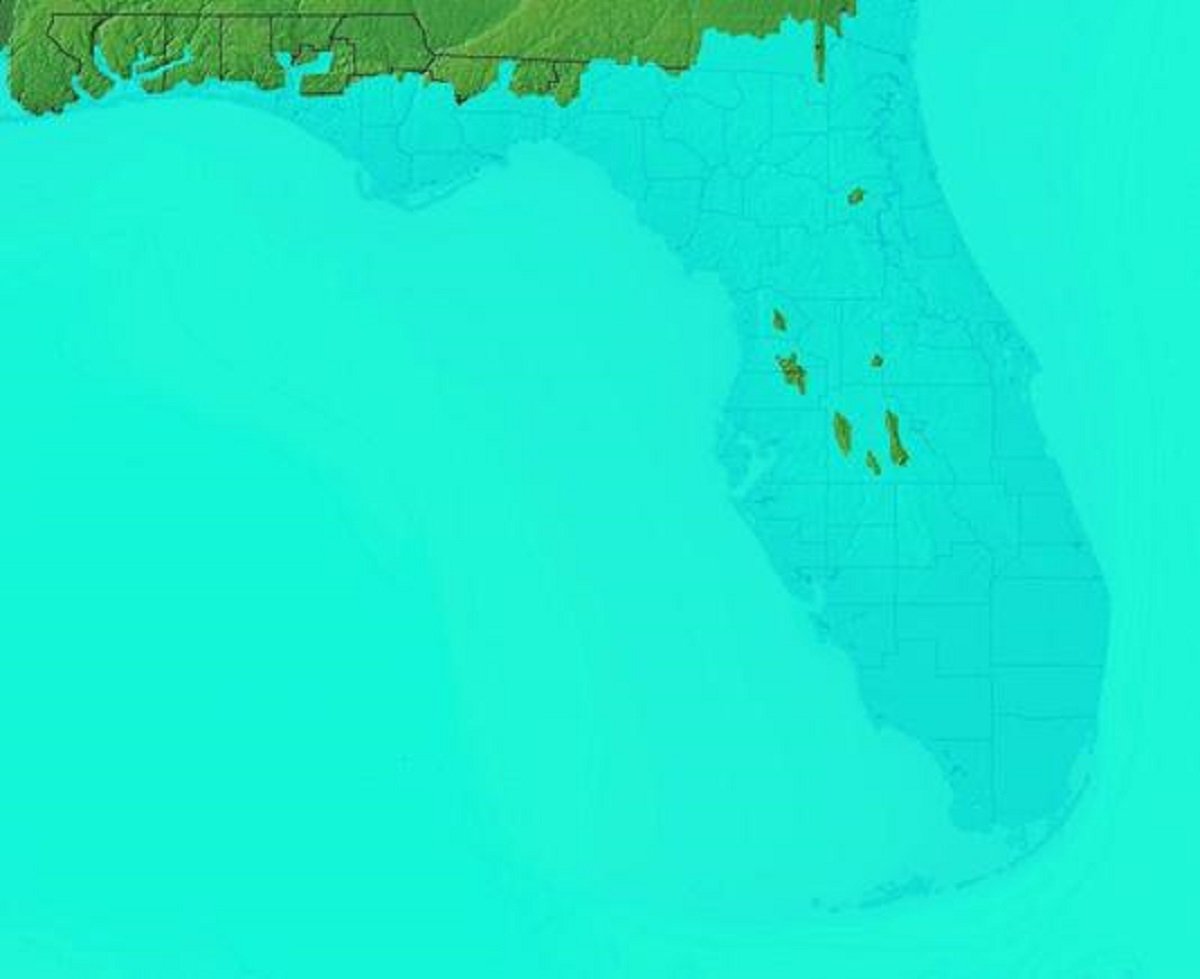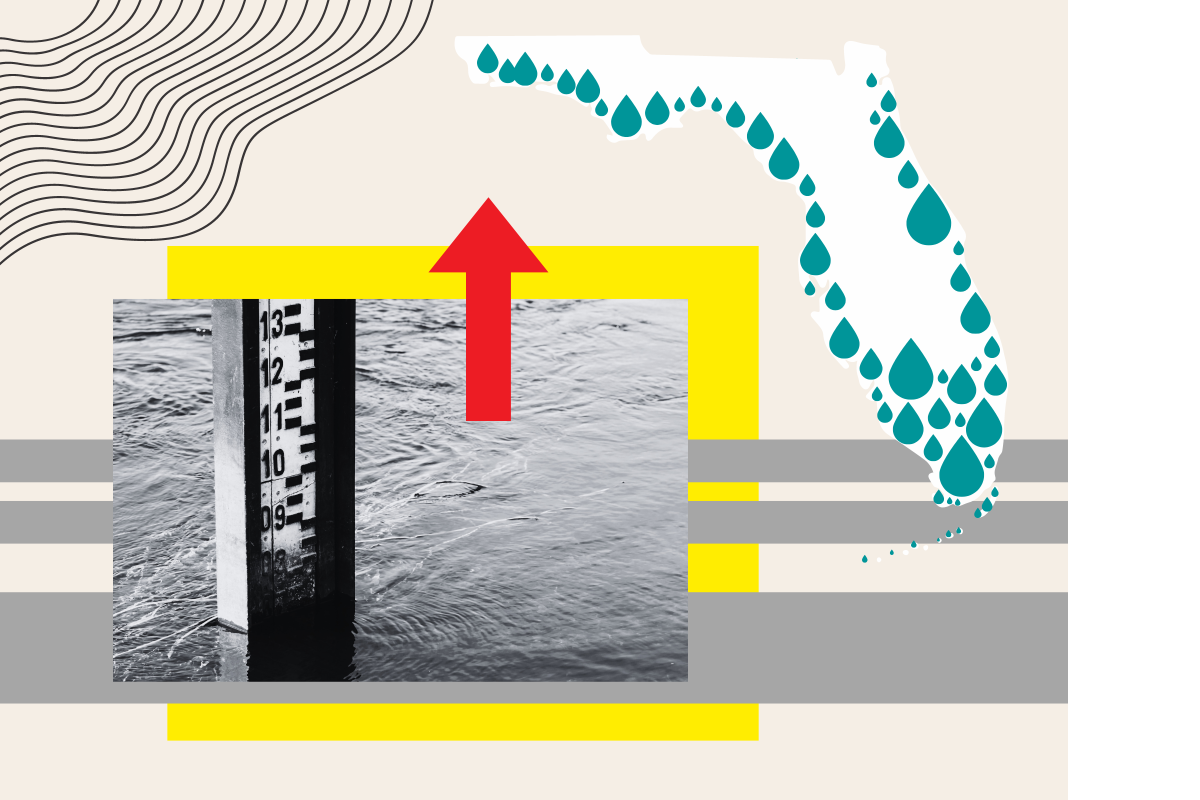Earlier in March, astrophysicist Neil DeGrasse Tyson published a post on X, formerly Twitter, which showed Florida and much of America's East and Gulf Coasts consumed by water. The post subsequently went viral, racking up 4.9 million views.
The TV scientist noted that Florida was relatively flat, making it "supremely susceptible to sea-level rise during climate change." Many of the replies questioned the truth of the projection, or climate change itself.
So is Florida really going to be entirely consumed by the Atlantic Ocean as sea levels rise?
Tyson's map appears to be lifted from the September 2013 issue of the National Geographic, which considered what different continents would look like if all of the world's ice melted, causing 216 feet of sea level rise.
In Florida, at 345-feet, Britton Hill is the highest elevation — the lowest highest elevation in United States. This makes Florida supremely susceptible to sea-level rise during Climate Change.
— Neil deGrasse Tyson (@neiltyson) March 10, 2024
An objective truth even if you don’t believe in Climate Change. Just Sayin'. pic.twitter.com/bSf34O8pQc
The report noted that some scientists thought it would take more than 5,000 years for this to occur, though this scenario was likely if humans continued emitting greenhouse gases at current rates.
Were this to happen, it wouldn't just be Florida that suffers; large swaths of South America would become sea, Denmark and the Netherlands would be reduced to a small set of islands, and most of Australia's population would have to be relocated.
David Thornalley, a professor of ocean and climate science at University College London, told Newsweek that this was "a very extreme example," but one that "would happen if we didn't take steps to reduce our GHG (greenhouse gas) emissions."
"In the long term, even under more moderate emission scenarios, sea level rise after a few hundred years is expected to be in excess of 10 meters [33 feet]," he said. "So the picture Neil shows is not that far-fetched, it is simply that this scale of sea-level rise will take centuries to millennia to occur, assuming we don't lower GHG levels."

So how much of Florida is expected to disappear underwater is a matter of time and ice sheet loss, with the state's terrain dictating what remains.
By the year 2100, the Intergovernmental Panel on Climate Change (IPCC) estimates there will be between 43 and 84 centimeters (1.4-2.8 feet) of sea level rise, but said that an increase of two meters (6.6 feet) "cannot be ruled out."
According to the National Oceanic and Atmospheric Administration's projections, a sea level rise of around three feet would still see much of Florida's coastline—along with much of New Orleans in Louisiana—consumed by the sea. Key West to Homestead would be underwater, as would a large portion of Miami.
Under six feet of sea level rise, all of Monroe County would be gone, while the coastlines around Cape Coral, St Petersburg and Tampa would retreat significantly.

But Thornalley said we were "often fixated" on how the world would be in 2100, which "is only 76 years (one lifespan) away and so if we are thinking about what the world may look like for the latest generation's grandchildren's grandchildren, then we will expect to see some of these larger sea-level rises, that will inundate large parts of Florida."
Different ice sheets have differing levels of vulnerability to melting. Thornalley said the most at risk were those parts of the Antarctic ice sheet that are marine-based—that is, the bottom of the ice sheet is sitting on land that is below sea level.
"This makes them susceptible to runaway processes that can cause very rapid collapse of the ice sheet (over centuries), leading to several meters of sea-level rise," he said. "Past warm periods, that were only 1-3 degrees Celsius [1.7-5.4 degrees Fahrenheit] warmer than the preindustrial [global average temperature], eventually led to up to 20 meters [65 feet] higher sea level.
"There is still large uncertainty on just how fast the ice sheets may melt, so it is a topic of real concern."

Were sea levels to rise by more than 50 feet, modeling conducted at the University of Florida suggests that nearly all but the state's northeastern border counties would be consumed by the sea.
But Antarctica's ice sheet holds enough water to raise sea levels by over 190 feet. One 2022 paper estimated that its ice sheet would collapse in around 2,000 years—though this could happen in as little as 500 years or as far away as 13,000 years.
Similarly, in a worst-case scenario for global warming, researchers estimated in 2019 that Greenland's ice sheet could be completely lost within the next 1,000 years. According to the Columbia Climate School, it holds enough water to raise sea levels by 23 feet.
As such, the two ice sheets collapsing would raise sea levels by 213 feet, consuming Florida entirely.
Correction 4/1/24, 4:20 a.m. ET: This article was updated to correct an erroneous conversion between Celsius and Fahrenheit.

Uncommon Knowledge
Newsweek is committed to challenging conventional wisdom and finding connections in the search for common ground.
Newsweek is committed to challenging conventional wisdom and finding connections in the search for common ground.
About the writer
Aleks Phillips is a Newsweek U.S. News Reporter based in London. His focus is on U.S. politics and the environment. ... Read more
To read how Newsweek uses AI as a newsroom tool, Click here.








